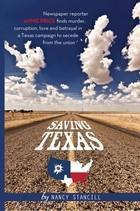Posts by hdcoadmin
Special report: Addicted nurses keep licenses
Some nurses continue to steal narcotics or practice while impaired under state monitoring that’s supposed to stop them.
Read MoreProsecutorial misconduct alleged in half of capital cases
In half of all capital cases in Arizona since 2002, prosecutorial misconduct was alleged by appellate attorneys. Those allegations ranged in seriousness from being over emotional to encouraging perjury. Nearly half those allegations were validated by the Arizona Supreme Court.
Read MoreWaste Lands: America’s forgotten nuclear legacy
The Department of Energy says it has protected the public health, and studies about radiation harm aren’t definitive. But with the government’s own records about many of the sites unclear, the Journal has compiled a database that draws on thousands of public records and other sources to trace this historic atomic development effort and its…
Read MorePrivate Prisons: Profit, Politics, Pain
“Patterns of rape, riots and squalor are found in lockups. Some incidents are tied to too few and often inexperienced guards. Some examples: An inmate left alone in horticulture class attacks another with a chunk of concrete. One inmate was so poorly fed, he ate crumbs off the floor.”
Read MoreIs Funeral Home Chain SCI’s Growth Coming at the Expense of Mourners?
In the death-care industry, as practitioners call it, SCI casts a long shadow. Based in Houston and publicly traded on the New York Stock Exchange (NYX), it operates more than 1,800 funeral homes and cemeteries in the U.S. and Canada. It has 20,000 employees and a market capitalization of $4 billion. For 40 years, SCI has gobbled competitors…
Read MoreWaste Lands: America’s forgotten nuclear legacy
Seven decades after the Manhattan Project turned the nation into a “factory” frantically focused on building the world’s first nuclear bomb, this Wall Street Journal investigation scrutinizes the government’s efforts – and failures – to clean up nuclear material haphazardly strewn across hundreds of sites in dozens of states.
Read MoreDept. of Veterans Affairs plans to release data delayed by secruity concerns
The Dept. of Veterans Affairs plans to release reports on first-time patients in the VA health system after not releasing data since March citing concerns for the “security arrangements for the delivery of the data,” according to their website. Previously, the VA had released four reports a year. The most recent data available is for…
Read MoreLongtime member pledges debut book royalties to IRE endowment
Nancy Stancill, an IRE member for 25 years and a former board member, has pledged royalties from her debut suspense novel Saving Texas, to the IRE endowment. Stancill, of Charlotte, N.C., has pledged the royalties from the first thousand books she sells to support the Godfrey Wells Stancill Small Newspaper Fellowship. The fellowship, established in 2006 in…
Read MoreA Yellow Card, Then Unfathomable Violence, in Brazil
Two killings in the Brazilian neighborhood of Centro de Meio over a soccer match gone wrong left the country spinning, the New York Times reports. The killings were widely reported as an extreme example of soccer violence in Brazil, a grisly contradiction to joga bonito, to play beautifully, as the country prepared to host the…
Read MoreRing of Fire
Thousands of veretans of the Iraq and Afghanistan wars are complaining of breathing problems, gastrointestinal disorders, and even rare cancers, the Verge reports. Some have already died of these ailments. A handful of health experts are now concerned that today’s veterans face an emerging epidemic, one threatening the lives of thousands of men and women.…
Read More
